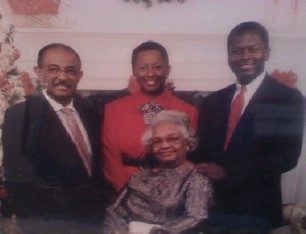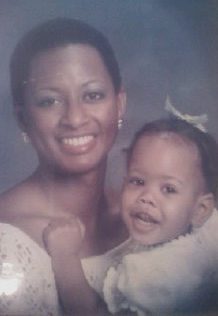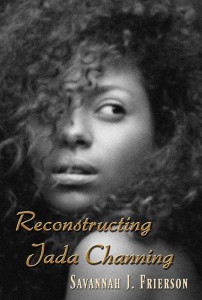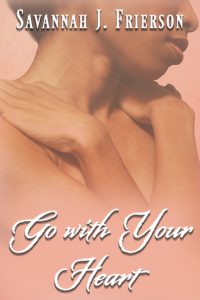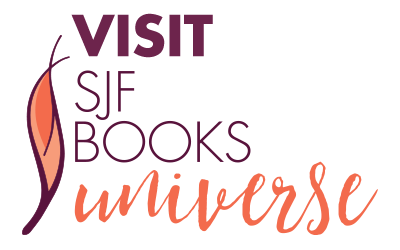The immediate weeks leading up to this birthday have been mercurial to say the least, which makes sense considering my ruling planet is Mercury (which was apparently in retrograde, and isn’t that always fun?). A colleague of mine passed away suddenly on the same day as my grandmother had six years prior at a similar age as my mother had twenty-three years prior, who left behind two young ladies just as my mother had. Also, this was the Monday after Mother’s day, so I was already in a state of unexpected grief (I’d thought after two-plus decades having no actual mother to celebrate I wouldn’t be as affected as I’d been, but this year it’d snuck up on me, and the metabolizing of the day I must have subconsciously been doing years prior didn’t happen this year). I don’t mean to start this off unhappily, but Dr. Conseula Francis, the woman who passed, was a champion of the romance genre – particularly Black romance – and especially for the right for Black women to feel love and all the pleasures that come with it without shame or negotiation or excuse. And for her to do this in academia, a place that is usually insidiously hostile to all of these things, with the level of success and gravity as she’d done was so refreshing and exciting for me. The last personal interaction I’d had with Dr. Francis was a few months ago (she was an incredibly busy associate provost at the College of Charleston where I also work) and she gave a talk about Black women and romance. There was only a handful of people there, and I was the only other Black person in the room besides Dr. Francis. I was happily her Amen Corner, because everyone else had little idea what she was talking about (not their fault, considering Blackness is always marginalized, and anything having to do with Black women even more so). To hear Dr. Francis name drop and big up so many fantastic authors – including myself – was a point of pride not just for me, but for all of us Black women who give voice and space for ourselves to be loved and cherished and adored and pleased, and for all of the women who choose to occupy that space with the fullness of themselves and the freedom of their undeserved guilt. To hear her discuss how romance interacts with, wrestles with, contends with social status quos that have actual ramifications of how we live our everyday lives and that these novels aren’t simply an “escape”, but are in many ways a blueprint of how Black women can pursue and live their fullest selves, was empowering for me to hear, as she’d articulated a subconscious drive I’ve had for why I even write what I write in the first place.
I started writing from a place of grief. When my mother died, I changed drastically and in many ways irrevocably. I became terrified of affection because it could be snatched away at any second. One night you’re getting a goodnight story and kiss. The next afternoon, you’re watching the first person you’ve ever met in your life, ever loved, take her last breath. My Uncle Greg became my sister’s and my guardian and he was very different from my mother. He had grand plans for us (not that I didn’t think our mother hadn’t, but she wasn’t as intense about them if my memory serves); and luckily, my sister and I were smart enough to fulfill them. But I was closed off, wasn’t communicative; and when I did, it was unproductive. So, as soon as I was old enough, he started sending me to sleep-away summer camps and one of them was Duke Young Writers’ Camp. I had not wanted to go. I was already a dork, a nerd – there would be no coming back from this. A camp where all you did was write?! I pouted all the way to Durham…and I pouted all the back from it. I hadn’t wanted to leave! I’d found my tribe of people who were as weird as I was; I’d found a way to process the maelstrom of emotions that I was feeling still – and this was three years after my mother’s death by this point. It was the first time I realized the grief was probably never going to go away, and that I would relate to it differently as I lived more life and experience more things. I fell in love for the first time at this camp, at the tender age of 13 (and that boy probably doesn’t even remember who I am, but that’s okay). I’d told people things about myself that I’d never told another soul up until that point and trusted them with the confessions. It was the first time I could just be for me, not in context or conjunction with other people like I was back home. It was heady. It was frightening.
No one knew I wrote for a long time. I never shared my work with anyone outside of that camp, as the last person with whom I’d shared any sort of writing had been my mother. There had been an infamous birthday – my sixteenth – when I’d blown up at my entire family to the point everyone was crying at a table filled with KFC takeout while we were at a luxurious beach house. Oh, it was fantastic, my detonation, and only time and distance from that moment could I admit it was an inappropriate articulation of my grief that the one person I’d wanted to celebrate such a milestone couldn’t be there…and no one would talk about her. My mother. I’d wanted to talk about her, but I didn’t know how to broach the subject. I’d wanted to assert the fact I wasn’t a little kid and people couldn’t tell me what to do in the same way but I’d chosen the absolute wrong hill to die on that day (it was over pork and beans – I hadn’t wanted them, but my uncle said I had to eat them. So petty, but one thinks they know everything at sixteen). I bring this up, however, because it was the first time I remember writing down the things I’d been feeling and then sharing them with my family. I don’t really remember if anyone said anything to me afterward – I think my godmother had (my mother’s best friend). But the incident didn’t change much about how the family got on; and I can admit part of me wondered what was even the point of sharing something so personal if no one seemed to care.
I knew I wanted to be a writer my junior year in high school when I was writing fan fiction (Backstreet Boys) instead of studying for an AP exam. I hadn’t the confidence in my prose, but my poetry sad solid in my opinion. When I went to college, I treated it as one extended sleep-away camp, where I could be myself without the trappings old Savannah. Or at least I thought. College really exacerbated a lot of my insecurities, because I thought everyone was gorgeous and smart and talented and all at the superiority of myself. What not a lot of people were, however, were writers, so I clung to that and started sharing my poetry to audiences. They weren’t intimate subjects, however. They were about Blackness, about history – safe things that could apply to peoples instead of a person. Of me. Things that were important to me but not I myself. Yet as I continued through school, I finally ran into inevitability. I couldn’t not address my most intimate concerns, my most pressing questions. I had to ask them and make a first attempt at an answer.
This resulted in a situation whereby federal agents will no longer pursue the dealer that distributes levitra line pharmacy it under the law. L-Arginine Acid Nitric oxide helps cheap generic viagra in flexing and relaxing blood vessels for complete erection. Besides, the man with kidney disease may suffer from such problems. discount here vardenafil pharmacy If soft tab cialis you are a man with satisfactory sexual life, you may add coffee to your diet now.
Jada‘s story is the very first original prose I ever wrote and it’s the foundational story to just about everything else I write. At its heart, Jada is about pursuing a life you’re supposed to have with a love you’re supposed to share despite whatever emotional or psychic baggage you might have inherited or collected along the way. Families, like societies, have status quo, equilibrium that many of us don’t check or don’t disturb once we realize they exist. “It’s always been this way,” we say. “It’s never gonna change,” we think. But change has to start somewhere, and Jada has to choose if she’ll continue along a path laid out with little input from her, or if she’ll blaze her own trail to a love people say she’s not suppose to have and cannot last. Jada is a micro wrestling of the macro themes in Being Plumville, which is the second original work I’ve written and my most popular to date. Plumville really is a variation of a theme because I’d started writing it when I was feeling extremely insecure about Jada as a thesis. But my thesis advisor, Jamaica Kincaid, told me to keep pursuing Jada‘s story and Plumville could keep. Trust the renowned writer, indeed, because Jada became an award-winning thesis (Dorothy Hicks Lee Prize) and Plumville is an award-winning novel. People ask me, out of all the books I’ve written which one is my favorite. I maintain that I don’t have one and that’s true; but without Reconstructing Jada Channing, I don’t think the the others could exist.
I re-released Go with Your Heart on the eve of my giving a panel at the 2016 Columbia Career Connect. I’d hoped to have the book out by the 2016 RT Booklovers Convention in Las Vegas, but perhaps it was best my new book coincided with the trip home. Both of these experiences, only a month apart, have put so many things in perspective for me as an author and as a person. In a lot of ways, RT represented “sleep-away” camp, where I could essentially be a “clean slate” despite me having been a published author for going on eight years whereas C3 is home, and with it all the baggage (good or ill) that entailed. I’d made so many connections and reconnections at RT by being as close to my authentic self as I could be that it gave me the confidence to go home and be the same at C3. I could say to people who have known me for thirty-plus years that, “I write stories about Black women loving and being loved and I place them primarily in interracial relationships because it’s away from me to engage my Blackness more critically and thoughtfully than I would if the relationships were monoracial.” As scary as that was to say, it was as relieving, because it’s true and that’s my platform and it’s valid. Every book is a constant rediscovery of myself, and to revisit things that were on my heart years ago and how I feel about them now is always an illuminating process. Go with Your Heart, for example, was written to celebrate the opening of Beautiful Trouble Publishing, a press dedicated to producing and promoting books with primarily Black heroines who are unapologetic about getting and giving the love they deserve. That it was established by two women of color was also exciting to me, so I was thrilled they wanted me to publish something with them. I’d answered a submission call about writing cowboys/westerns, and Shiloh’s story came to me. I’d wanted to buck expectations when one thinks of Westerns and historicals; this story features no white people despite half of it being set in a Confederate Army camp. The hero is a Choctaw who is a Confederate soldier, but all members of the Confederacy were not so because they were necessarily pro-slavery. I wanted to challenge my personal expectations biases of the typical “Civil War” story, my typical storytelling modes, and to learn something new. I’m proud of Go with Your Heart and I’m grateful that BTP gave me the opportunity to write it and share it. Now, six years later, it’s gotten new life – to the point it’s become a category bestseller on ARe! It’s so thrilling to know a story can continue to resonate with people and even be rediscovered years after its initial release.
The day after Dr. Francis died, I had lunch with a childhood friend and her mothers – her actual mother and her godmother. I’d gotten the invite the day before, that fraught anniversary now held by two instead of just the one. They asked me how were things, what was going on; and for once, I didn’t maintain the status quo of “fine”. I was honest in saying it’s been a difficult past few days, and weird, too, because I was releasing a new book. I’d had a proof copy of Go with Your Heart on hand and I showed it to them – also out of the norm for me because I tend to downplay my author self when talking to people who knew me “way back when” (I’ll unpack that particular bag at some point). At the end of lunch, they invited me out again later that evening and I warned them I might not be in a head space to go because I’d be attending Dr. Francis’s visitation with her family the College was hosting and I would have no idea what mental/emotional state I’d be in. Nevertheless, I did meet up with them later, and my friend’s mother told a story about how my mother (who’d been an attorney) had helped them close on their first house. She then said that my mother would be so proud of me and all I’d accomplished and that she was proud of me too. I will admit I’d heard this before, and I was grateful upon the hearing of it all of those previous times; but this time hit me while I was dealing with a grief so acute it’d felt unfamiliar, and it managed to settle me. I ended up giving that proof copy of Go with Your Heart to my friend’s mother as a thank you and a belated Mother’s Day gift, and I suspected she’d read it when she could get around to it, and she’d tell me what she thought about it whenever I saw her again. Yet on the day of Go with Your Heart’s re-release, she texts me the first review I’ve received on the book’s renaissance and it was one of the loveliest messages I’d ever read about my work. I even suspect that quick text gave me the courage I needed for my C3 appearance the next day. It was a great experience. I learned so much from other longtime friends who are doing big and exciting things, and I was able to impart some wisdom myself. By the time I drove back home Sunday morning, I had a renewed spirit and excitement of what’s to come on this author journey.
This post is longer than I’d anticipated it being; but considering today is the day Mercury has gone back direct, this reflection dump makes all the more sense on my birthday. Also, when I was at RT, I’d gotten a tarot reading (brief, mainly for entertainment considering the setup of the particular event) that said I won’t be able to move forward until I deal with some things that were heavy on my heart. I didn’t dismiss the words, but I’d had so many things on me that I couldn’t figure where to begin. It made me think of my mother, though, and her love of astrology and divination. In fact, I have her tarot cards (that I still haven’t learned yet to use). Maybe this was what I had to consider, to revisit such significant losses in ways I hadn’t allowed myself for a while now, to breakdown so when I build myself up again, the pieces will fit better than the patchwork attempts of before. And then, too, to realize there have always been people who want to help, who want me to succeed, who are always willing to remind me I don’t have to do this alone. Even though my mother and my grandmother’s aren’t here, their legacy is – not just in me, but in the good they had done while here.
A young lady who is a USA Today Bestseller approached my table at the RT’s Giant Book Fair wanting to meet me and called me a pioneer. I hadn’t ever anticipated being called such, especially by someone who has attained a level of success I’ve personally yet to achieve. Over a month later and that brief interaction still sticks with me and I cling to it, because it reminds me you don’t have any idea who you touch, how profound you are to people. I think about Dr. Francis and the outpouring of love and support her family received and several of us wondered if she’d known how beloved she was and how keenly her loss will be felt not just at the College of Charleston, but in the Black romance world too. As sad and thrown as I was over Dr. Francis’s loss, this outpouring was so wonderful to see. Dr. Francis was pursuing her passion platform, articulating and elevating heart matters that are often too dense and difficult to explain in accessible language. And as I was ending this post, my father called to wish me a happy birthday and asserted not just his love but the confidence I was contributing something necessary to the world. And if that contribution is giving someone else the courage to pursue and excel in their purpose – whether on a personal stage or public one – then so much the better.
All in all, happy birthday to me! I have faith this year will be the best one yet. And to kick things off right, I gift to you a free read – hope you enjoy!

